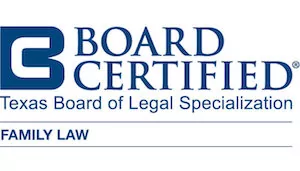
At the Ramos Law Group, PLLC, we are passionate about providing compassionate, attentive legal representation for divorce and family law clients in the Houston area. Having to go back to court after a contentious divorce or request the court’s assistance after a split that you thought was amicable is never what you hope will happen. However, our experienced attorneys can help make the process as smooth as possible.
Requesting Enforcement
If a party has failed or refuses to comply with a court order in a family law case, you can file a motion for enforcement or a suit to enforce the order. When requesting the court enforce a family law order, you typically need to explain the following:
- What part of the order your ex violated,
- How they violated it, and
- What action you want the court to take.
You also must decide whether to ask the court to find your ex in contempt of court because they failed or refused to comply. Contempt is sometimes called “quasi-criminal” when based on underlying civil proceedings like family law orders. Instead of the State prosecuting the violation, an individual usually asks the judge to find the violator to be in contempt of court.
Being found in contempt of court can potentially result in:
- Six months in jail,
- Up to a $500 fine, and
- Being ordered to pay the other party’s attorney’s fees and court costs.
Not every enforcement action results in a finding of contempt of court, but contempt is a powerful tool your enforcement of orders attorney can use.
Enforcement of Child Support Orders
A frequent reason to ask the court to enforce an order is when one party fails to pay child support. When you request the court enforce a child support order, you must specify:
- The respondent’s existing child support obligation,
- The amount actually paid, and
- The amount in arrears, or past due.
To the best of your ability, you should provide dates and any official documentation declaring the amount owed and receipt of amounts paid. But keep in mind that failure to pay child support does not justify withholding access to a child. Neither does withholding access to a child justify failing to pay child support.
The court will take a party’s financial resources and inability to pay into consideration when ruling on an enforcement action. However, they still owe child support payments until and unless they successfully petition the court to modify child support.
Enforcement of Child Custody Orders
Failure to comply with a child custody order can be uniquely frustrating. Do your best to resist any urges to stoop to the other person’s level if they interfere with your access to your child. You do not want to give them fuel to argue that you failed to comply with the order.
When you request enforcement of a child custody order, include the date, place, and time of each instance the other party failed to comply. It can be helpful to keep a contemporaneous record. The more information you provide, the better, especially if you have direct proof like text or email exchanges. Even noting those three basics down in a personal calendar can be enough to build a solid enforcement request.
Enforcement of Spousal Support Orders
The court can enforce court-ordered or agreed-upon spousal support as long as the agreements do not exceed what the court could have ordered. You must prove the other party owed money under the agreement and did not pay it.
Enforcement of Property Division Orders
Sometimes, a party refuses to surrender personal property or vacate real property despite a court order. You must file an enforcement action for property division within two years of the order or when you gained a right to the property.
Typically, you ask the court to compel the other party to deliver the property to you on penalty of contempt. If the previous order was not sufficiently clear on who was entitled to what property, you can ask the court to clarify before or at the same time as you file for contempt.
Enforcement of Protective Orders
If you and your ex-partner have a history of family violence, you may have a protective order against them. Protective orders are typically enforced by the police, and contempt of a protective order may lead to serious consequences.
Houston Enforcement of Orders Lawyer
If you are struggling with an ex who is refusing to comply with a court order in your family law case, the attorneys at the Ramos Law Group, PLLC, can help. You have options to get what you are owed and to have your ex comply with all court orders. We pride ourselves on our innovative approaches and ability to provide our clients with empathic, individualized attention. Contact us today to get started.










